The Next Chapter with Terry Tyler
Terry Tyler
Today we welcome back author Terry Tyler to Whispering Stories Blog to catch up on what she has been doing since our interview with her back in June 2015 on ‘The Writing Life of: Terry Tyler‘. This post contains affiliate links.
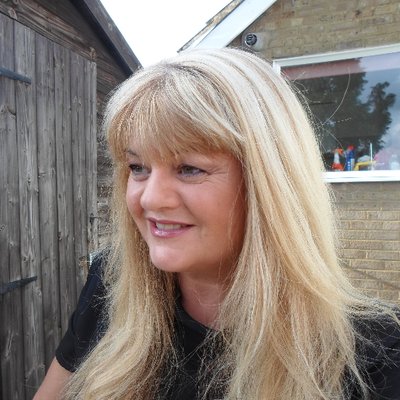
Terry Tyler is a writer living in the north of England. She has just published her nineteenth book on Amazon, and also writes a popular blog on which she features advice for new writers, reviews of books, TV and films, and general random stuff about anything that inspires her to put fingers to keys. She reviews books for Rosie Amber’s Book Review Team, and has a particular love for history and the post apocalyptic genre.
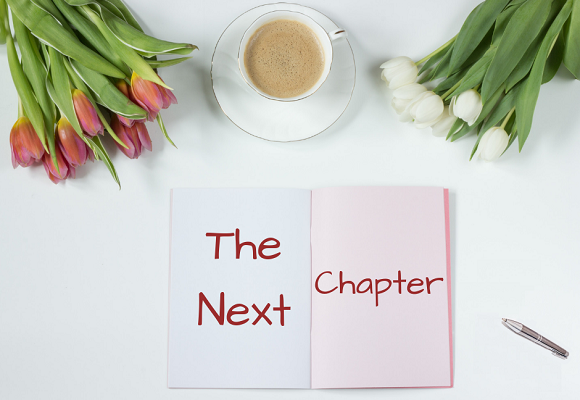
Welcome back to Whispering Stories Blog, lovely to be featuring you again. We last met you back in June 2015 when we spoke to you about your writing life and your latest book at the time ‘Last Child’. Since that date I believe you have written and published another eight books.
1) How has life changed since we last met you?
I still sit at my laptop every day, writing―hence the eight books. Sadly, the biggest change for me has been that both my parents have died in the past two years. Here I’ll just quote my cousin: you never know how it’s going to affect you, and it will be nothing like you imagined. Sorry to start off on a sad note; I did consider skipping over it, but it didn’t feel right.
The biggest change in my day to day life has been that I’ve become an almost-vegan―’almost’ because on occasion I eat eggs from chickens that are genuinely free range, and the odd bit of something (like a biscuit) that has milk in it. I made this change having found out much about the animal agriculture industry that made me not want to support it by buying their products. Aspects of my health have improved, and I’m amazed that I now find ‘real’ cheese and butter too rich and fatty―they were two of the things I found so hard to give up.
Aside from this, I have just got older and greyer!
2) Has your writing style changed since we last interviewed you?
I don’t think my writing style has changed since I first tried to write a novel, in 1993, but I hope I’ve honed it into something better. What I write about has changed, though; I find I’m more interested in what makes us tick as a species, not just individually.
I started off writing family dramas mixed with romantic suspense; this morphed into the darker side of human nature, and then to dystopian scenarios, how large groups are affected by dramatic shifts in world events, and how trends and sociological changes are absorbed by us.
3) Have you allowed yourself to be influenced by your readers’ opinions of your characters?
Yes, I think so. When I wrote Lindisfarne, the second book in my post apocalyptic series, I found that readers loved Lottie, an eighteen-year-old who thrives in the new world. Partly because she was such a hit, I gave her star billing in the rest of the series. I’ve also discovered, via readers’ comments over the years, how important it is that the readers really do like some of your characters; if they don’t, they won’t care what happens to them. I adore writing the selfish and self-absorbed, even sociopathic, but these need to be balanced with characters that readers want to root for.
4) Have you found writing gets easier or harder the more books you write?
Both easier and more difficult. The actual process is easier, as with any job you’ve been doing for some years; I know, too, how I will feel during each stage. I accept that first draft is only the beginning, the creation of the material that I will then work on for several months to turn it into something publishable. Experience also makes me see more easily when I need a bit of action, or a bit more dialogue, to keep the story balanced and flowing; only last night, when I was watching telly, I was mulling over a piece I’d just written, and I thought, ah, no, it’s not enough for Evie just to tell the reader about it. It needs a scene, maybe one or two pages, in which we are with her, experiencing it, too. This sort of thing comes automatically, now. Doesn’t mean I always get it right, of course; no one does.
Harder? Once a book has been received well, you worry more about the next one; this never goes away, and the more people are reading you, the more chance you have of disappointing some. I worry that I won’t be able to think of convincing plots, that I will repeat ideas and characters I’ve written before. It’s very difficult not to repeat characters, particularly aspects of them that readers have loved.
5) Is there a difference in the way you feel about your books the more you publish? As in do you still feel the same level of excitement?
I still feel excited about every new project. I think this, and the worry, the self-doubt, the frustration, the moments of satisfaction and ones of ‘this is total garbage’ are part of every creative project. If they’re not, there’s something wrong.
6) If you could live within the pages of any of the books created by you, which would you choose?
Definitely the first three books of my post apocalyptic series – as long as I’d had the vaccination for the pandemic! I’m a bit post apoc obsessed, and love reading and watching almost anything of the genre.
Concerning your latest book:
Pages – 516
Release Date – 3rd May 2019
Format – ebook

‘We haven’t elected a Prime Minister, we’ve elected a lifestyle’.
As the fourth decade of the 21st century looms, new PM Guy Morrissey and his fitness guru wife Mona (hashtag MoMo) are hailed as the motivational couple to get the UK #FitForWork, with Mona promising to ‘change the BMI of the nation’.
Lita Stone is an influential blogger and social media addict, who watches as Guy and Mona’s policies become increasingly ruthless. Unemployment and homelessness are out of control. The solution? Vast new compounds all over the country, to house those who can no longer afford to keep a roof over their heads.
These are the Hope Villages, financed by US corporation Nutricorp.
Lita and her friends Nick and Kendall feel safe in their cosy flat, their lives lived mostly online. Unaware of how swiftly bad luck can snowball, they suspect little of the danger that awaits the unfortunate, behind the carefully constructed mirage of Hope.
Terry Tyler’s nineteenth published book is a dystopian tale that examines, amongst other subjects, the darker side of social media, as the gap between the haves and the have-nots grows ever wider. Whether or not it will mirror the future that awaits us, we will have to wait and see.
7) How long did it take you to write this book?
My books always take roughly the same amount of time: three-four months for the first draft, then another three for all the re-writes and editing.
8) Can you tell us a little about your new book?
Hope is a picture of this country in ten years’ time, when social media has become an even bigger part of everyone’s life than it is now, when more jobs have been taken over by automation and the benefit system has become increasingly ruthless, so there are more homeless people than ever. Behind the scenes, those in power see that automation leading to unemployment will only exacerbate as the years go on, that the population must be controlled to a manageable level, and that even the lucky ones who can maintain a decent lifestyle must be kept in line.
I can see a time coming when it will be impossible to live in this country without, for instance, having a smartphone; I was on a train yesterday and noticed that more people were holding out their phones for the conductor to check travel passes, than were holding out paper tickets. Hope is just the beginning of this; I have in my mind a Book 2, another twenty years down the line, in which if you don’t become part of ‘the system’ by which all your movements can be tracked and traced via your ‘device’, you cannot actually live.
9) Can you tell us anything you edited out of your book?
Ha ha―most of it! I was half way through the first draft when I accepted that it wasn’t working. I’d started off writing a dark dystopian semi-thriller, but it had turned into more of a human interest story with tedious ranting about the unfairness of the benefit system. It contained a complicated sub-plot about drug dealers that wasn’t convincing me.
I was about to scrap it, when I talked it through with my husband, and he asked me two questions: Who is the bad guy? What is the struggle for the main characters? And I realised the whole plot needed simplifying, some of the characters were superfluous, and one of the main ones needed turning into a different person. I did have a great scene that didn’t fit in with the new story, which I’d been looking forward to writing, but perhaps I can use it in another book!
10) Are you still going through the same publishing methods?
Yes – ebooks on Amazon only. I’ve been saying for years that I really must do paperbacks, but it hasn’t happened yet. I’m not prepared to do the proactive selling necessary to make money out of them; I’m no salesperson, and can’t think of anything more ghastly than sitting in a bookshop hoping that people will come along and want me to sign a book. I don’t care about seeing my work in hard copy; I know many writers get a thrill when they first hold their own book in their hands, but I’ve never been bothered about that. I only read on Kindle anyway, so the whole paperback thing seems a bit alien to me.
11) Can you remember seeing your book for the first time in the bookstore, supermarket, online?
Yes – it was terrifying!
12) What next for you in your writing career?
I’m currently writing a stand alone novel set in my fictional city of Blackthorn, that featured in Book 4 of my series, Legacy. It’s about the return of religion to the post apocalyptic world, and all the problems this brings, but, as with all my books, it’s primarily concerned with the paths of the main characters.
Next, I have ideas for two psychological, contemporary dramas, and then there’s that sequel to Hope. I would really like to write another post apocalyptic book, but need to think of a new angle. I don’t want to die without writing a zombie book, either; I am never sure which book I am going to write next until the current one goes off for proofreading!
Reviewers’ Questions
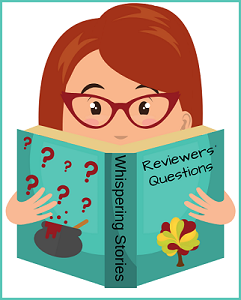
1) Question from Julie – Does it become easier or harder as time goes by to take criticism on board, particularly if it’s non-constructive?
Easier. When you get your first bad review you take it so, so personally, and it’s quite hard to deal with. After a while, though, you just think, oh well, so they didn’t like it. If a book has sold several thousand copies, it’s bound not to have appealed to everyone who has read it. The wise writer takes on board comments that might improve future works, and just accepts that no book, or film, or TV show, or whatever, will be well-received by all.
Let me illustrate this: recently, on the same day, I had two reviews for my book The House of York. One said that the book was DREADFUL (yes, they used capital letters), and warned readers: DO NOT BUY! The other said how much they’d adored it, that they’d just bought two more of my books, and I was their new favourite author. I rest my case.
Pre-publishing, my final test reader is exceptionally critical, and tears apart stuff that I thought was fine. We used to argue; now, I accept and consider more easily. But if I’m adamant something is right, I won’t change it.2) Question from Cara – Do you base your characters on people you know or have met briefly?
I don’t base characters on any one person, but I take aspects of from those I know or have known, I suppose; I’ve always been a great observer of the motivations and reactions of others, and the self-delusions. On the whole, though, the characters are a product of my imagination, but that imagination has been fed by real life, for a long, long time.
I will add that many readers assume fictional characters to be thinly-veiled versions of people the author knows in real life, but that they rarely are. I’d say that real life gives us ideas for characters, but we don’t very often actually base a whole character on someone we know. Having said that, the dialogue of one minor character in Hope (Dwayne) comes directly from a long ago ex-boyfriend (a very minor character!).
3) Question from Kerstin – How do you work out the plot? (e.g. post its?)
By walking and thinking, by lying in the bath and thinking, and by lying in bed watching telly, not concentrating on the film, and thinking! I get new ideas for new plot threads/scenes/developments all the time, even as late as the 5th draft.
During the first draft, I always have the next couple of chapters planned out in note form underneath what I’m writing, so that I know what’s coming next when I open the document again. When I’ve finished one chapter, I go to the next set of notes, read them through and start writing. I have bits of paper with timeline lists and, yes, post-its, all over the wall in front of my desk. In the living room. We’re having the room re-decorated next week, though, so I don’t know if I’ll still be allowed to do this!

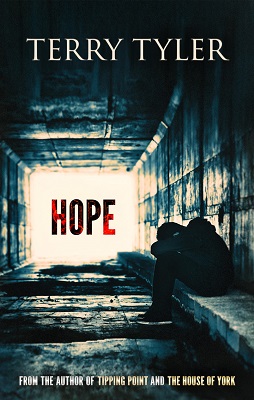




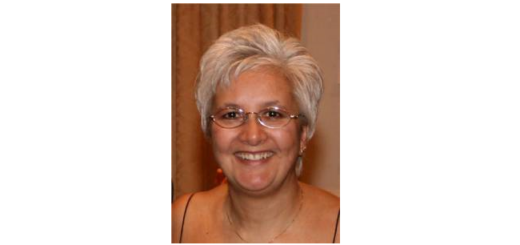
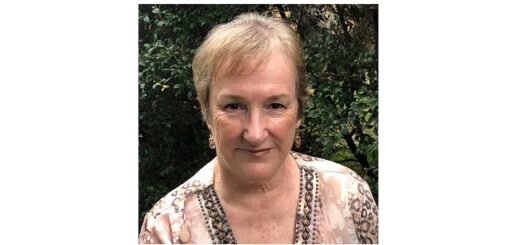

Another amazing interview. I love Terry’s books.
Thank you, Emma – and thanks for reading this x
Awesome interview. Writing 8 books since 2015 is a huge accomplishment. I wish I had that drive!
I always enjoy your interviews – she is new to me
I love this feature so much! I love how you are able to have a more detailed conversation with the author, when you have a point from where to start. I’m really sorry for your loss, Terry!
Great interview, I cannot wait to read the next one.
WOW! I wish I could whip out first draft in 3-4 months.
Really great interview and the book looks quite hard hitting.
Such a great interview, very insightful.
Gemma @ Gemma’s Book Nook
I don’t do much else, Bentley – but I do think you need that drive if you’re going to succeed at anything that is solely down to you. It’s just a matter of finding what it is that totally absorbs you. Thanks for reading!
Thanks, Ruby Jo, you are most kind 🙂
Thanks for reading, too, and DJ!
Thanks Emma, Glad you like it. I too love Terry’s books.
Thanks, 8 is some achievement.
Thank you, You should really check out her books.
Thanks Ruby, So happy you like it. I always try to ask different questions to others.
Goes to show what an amazing imagination Terry has and how dedicated to writing she is.
Thanks. I think the book is scary to think about as it could be the future!!
Thanks Gemma. Glad you liked it.
I think it comes with practice, Kate – after so many novels, I know the process so well! I read Sam Tonge’s interview earlier; she said she can do it in 4-6 weeks, which amazes me! But it also depends how much time you can spend on it, of course. I publish 2 books a year; others publish 4, and some only one every 2 years. We all have our own pace!
Thanks, Melanie – it’s hard hitting in a light sort of way, I think!
Thanks for reading, Gemma 🙂
I love Terry’s books, so I was particularly interested in hearing about her future writing plans, and it’s always great to read more about author’s writing process.
Thanks Olga, So happy you like the interview and got to find out about Terry’s future plans.
Great interview. I always like learning more about the authors behind the books.
Thanks, So happy you like it and are learning lots.
Awesome interview. Thanks for the feature, never knew of this author.
Thank you. Terry’s books are amazing, you should check them out.
Thanks for reading, Veronica! x
Thank you for reading, Nadene, and another thank you to Whispering Stories and Stacey for helping us spread the word – your comment and a couple of others have really shown me how effective it is. Hugely appreciated!